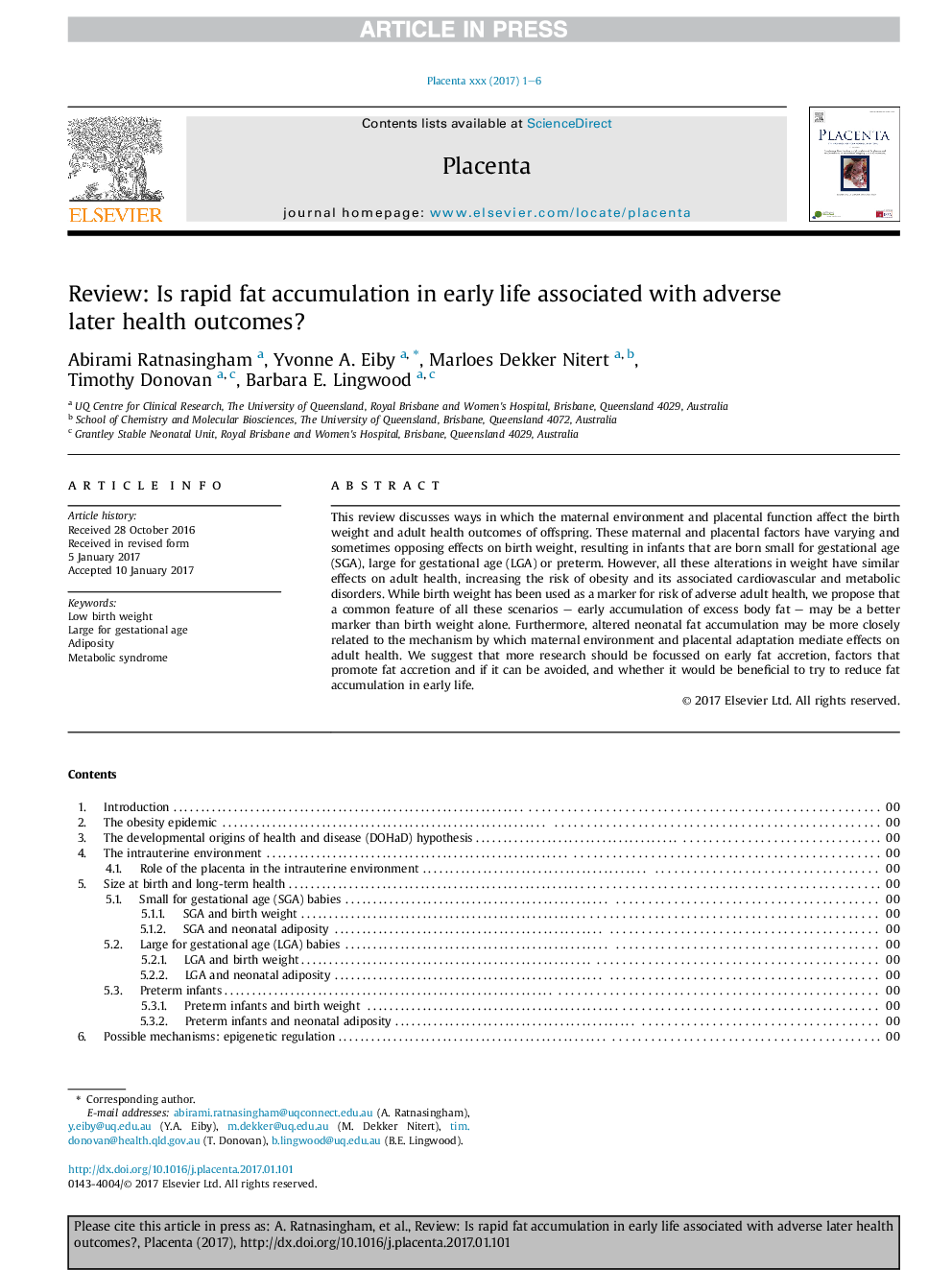| Article ID | Journal | Published Year | Pages | File Type |
|---|---|---|---|---|
| 5585977 | Placenta | 2017 | 6 Pages |
Abstract
This review discusses ways in which the maternal environment and placental function affect the birth weight and adult health outcomes of offspring. These maternal and placental factors have varying and sometimes opposing effects on birth weight, resulting in infants that are born small for gestational age (SGA), large for gestational age (LGA) or preterm. However, all these alterations in weight have similar effects on adult health, increasing the risk of obesity and its associated cardiovascular and metabolic disorders. While birth weight has been used as a marker for risk of adverse adult health, we propose that a common feature of all these scenarios - early accumulation of excess body fat - may be a better marker than birth weight alone. Furthermore, altered neonatal fat accumulation may be more closely related to the mechanism by which maternal environment and placental adaptation mediate effects on adult health. We suggest that more research should be focussed on early fat accretion, factors that promote fat accretion and if it can be avoided, and whether it would be beneficial to try to reduce fat accumulation in early life.
Related Topics
Life Sciences
Biochemistry, Genetics and Molecular Biology
Developmental Biology
Authors
Abirami Ratnasingham, Yvonne A. Eiby, Marloes Dekker Nitert, Timothy Donovan, Barbara E. Lingwood,
